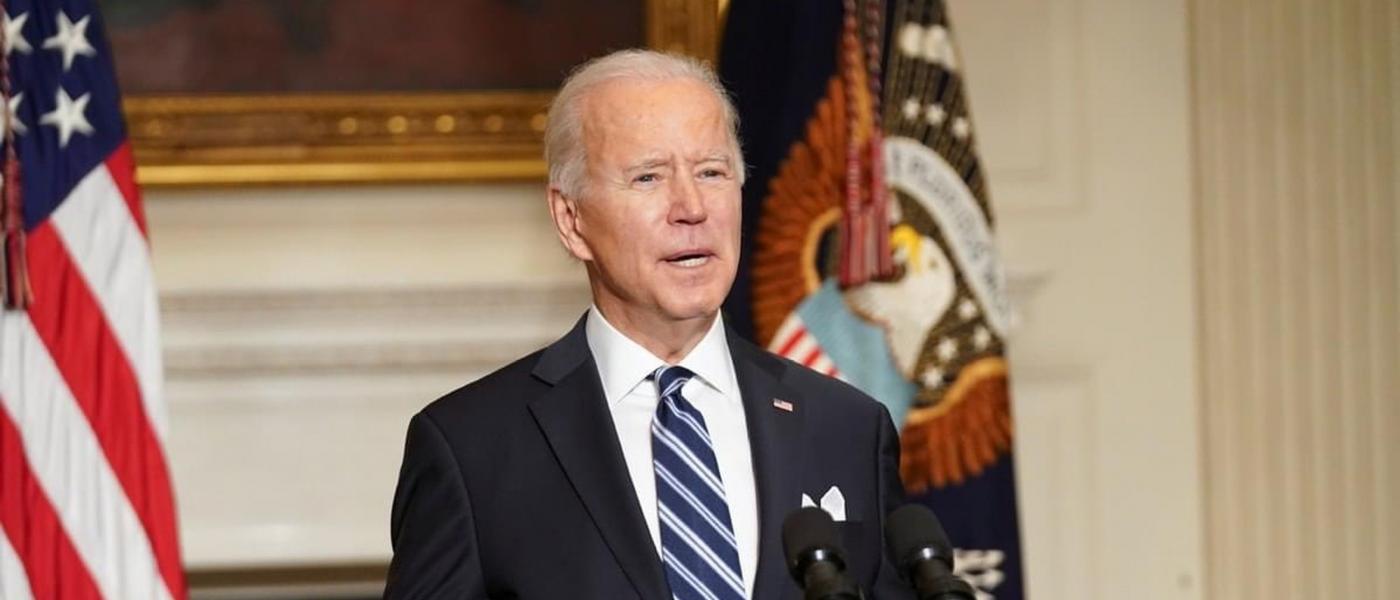While President Joe Biden’s critics have been arguing that sitting down with Putin on June 16 would look weak and wobbly, White House officials have kept their heads down and laid the groundwork for what could become the most sweeping policy initiative against corruption and kleptocracy in U.S. history.
The administration’s preliminary work—four months in the making—became public in a memorandum that Biden issued last week to establish countering corruption as a core U.S. national security interest and to order departments and agencies to spend the next 200 days developing an expansive anti-corruption strategy.
It was already clear that Biden is more focused on corruption as a matter of national security than any other U.S. political figure. He has warned for years that autocrats use corruption as their new tool of foreign policy and that it poses an underappreciated threat to democracy. Biden led the U.S. fight against corruption as vice president and pledged to prioritize it at his Summit for Democracy as a presidential candidate. What we just learned last week is that, as president, Biden has begun translating his vision into a government-wide elevation of anti-corruption to the center of U.S. national security strategy.
The administration started rolling out its renewed efforts last Wednesday, when the State Department signed onto a G7 commitment at the first-ever United Nations session dedicated to corruption and three senior U.S. officials spoke at a side event about their whole-of-government approach to combating kleptocracy. Also on Wednesday, the Treasury Department issued its single largest package in history of sanctions targeting corruption, hitting Bulgaria’s richest oligarch, one of its most influential media tycoons, and their vast empires of companies and front men. Treasury’s press release was clear about the U.S. commitment to targeting corruption, and it included bombshell revelations about bribery schemes and covert channels of Kremlin influence over the Bulgarian government. Critics argue that separately waiving sanctions on the controversial Nord Stream 2 gas pipeline allows strategic corruption, but that U.S. policy stance was only meant to create space for negotiations with Berlin about how to stand up to Russia together, a process that also got underway last week.
But the most important anti-corruption move Biden has made thus far was the memorandum he signed last Thursday, which is his first presidential study (National Security Study Memorandum-1). On average, the past nine presidents have issued about 50 national security reviews to mobilize the government around priorities ranging from nuclear proliferation to space policy.
Speaking on background, a senior administration official described the memo as laying out how Biden expects federal agencies to “up their anti-corruption game in very specific ways.” The official said that the review process ordered up by Biden matters, because “it’s really important, when you want to get big systemic things done to, one, say the president is paying attention, and two, to set a deadline for yourself, and that’s what we’ve done here.”
But the most impressive aspect of this initiative is its ambitious substantive scope. The U.S. official underscored how it covers “the full span of everything that all of our departments and agencies can bring to this fight.” Specifically, the strategy will bolster the ability of the United States to root out dirty money, impose strong sanctions, confiscate stolen assets, close loopholes enabling strategic corruption, support civil society and independent media, enhance foreign assistance to countries trying to tackle corruption, build up multilateral institutions, help domestic and international authorities improve transparency and oversight, and otherwise modernize, coordinate, and resource U.S. efforts against corruption.
And while these efforts will include domestic reforms—which is why the national security council is ordered to coordinate with the economic and domestic policy councils, and why the memo points to specific legislative needs—Biden emphasized in his statement that “this is a mission for the entire world.” That same day, U.S. ambassadors delivered remarks at the United Nations notifying the world—allies saddle up, oligarchs be warned—that Biden has now established the fight against corruption as a core national security interest.
White House officials have not yet decided how much of its final strategy to publish. Most presidential review directives are eventually followed up with a policy decision directive along the same lines but with more detailed commitments, and indeed a policy directive is what Biden pledged as the U.S. deliverable at the Summit for Democracy within his first year in office, which could line up well with the 200-day deadline. But while the senior official said, “we are going to make something public,” the official also cautioned that some aspects will remain classified, like “if there’s direction to the intelligence community to provide more resources to uncovering acts of corruption and what we might do with that information, I’m sure you can envision why some of that stuff would be non-public.”
As federal departments and agencies begin developing the anti-corruption strategy, they should implement Biden’s ambition by detailing some 100 steps to institutionalize reforms throughout U.S. and international financial, diplomatic, and legal systems. And beyond just listing work they already do well, such as sanctions, departments like Treasury should reimagine how to deploy their manifold tools against oligarchs and kleptocrats. Indeed, the senior administration official said elevating and accelerating efforts will also involve coming up with new initiatives and identifying resource shortfalls and pathways to fill those gaps.
Biden and his closest national security pros—Jake Sullivan, Tony Blinken, Samantha Power—have all been banging the war drum in unison about the strategic importance of corruption and kleptocracy. They see the public—at home and abroad—becoming highly receptive to messages about corruption at the same time as authoritarian rivals have reorganized from communists to kleptocrats, making corruption the new glue in their grip on power and their new tool of foreign aggression. With that momentous backdrop and this comprehensive initiative from the White House, anti-corruption could become as important to U.S. grand strategy as any approach since the containment of communism.
Biden’s critics—potentially accustomed to the past four years of foreign policy built for pageantry and spin—are missing a major workstream that could develop into one of the most powerful and sweeping policy programs of our time.
The views expressed in GMF publications and commentary are the views of the author alone.





